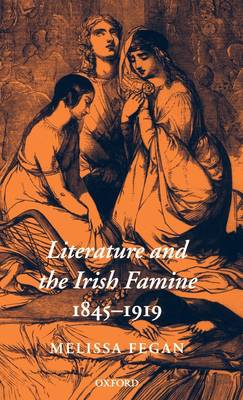
Je cadeautjes zeker op tijd in huis hebben voor de feestdagen? Kom langs in onze winkels en vind het perfecte geschenk!
- Afhalen na 1 uur in een winkel met voorraad
- Gratis thuislevering in België vanaf € 30
- Ruim aanbod met 7 miljoen producten
Je cadeautjes zeker op tijd in huis hebben voor de feestdagen? Kom langs in onze winkels en vind het perfecte geschenk!
- Afhalen na 1 uur in een winkel met voorraad
- Gratis thuislevering in België vanaf € 30
- Ruim aanbod met 7 miljoen producten
Zoeken
Omschrijving
The impact of the Irish famine of 1845-1852 was unparalleled in both political and psychological terms. The effects of famine-related mortality and emigration were devastating, in the field of literature no less than in other areas. In this incisive new study, Melissa Fegan explores the famine's legacy to literature, tracing it in the work of contemporary writers and their successors, down to 1919. Dr. Fegan examines both fiction and non-fiction, including journalism, travel-narratives and the Irish novels of Anthony Trollope. She argues that an examination of famine literature that simply categorizes it as "minor" or views it only as a silence or an absence misses the very real contribution that it makes to our understanding of the period. This is an important contribution to the study of Irish history and literature, sharply illuminating contemporary Irish mentalities.
Specificaties
Betrokkenen
- Auteur(s):
- Uitgeverij:
Inhoud
- Aantal bladzijden:
- 292
- Taal:
- Engels
- Reeks:
Eigenschappen
- Productcode (EAN):
- 9780199254644
- Verschijningsdatum:
- 3/10/2002
- Uitvoering:
- Hardcover
- Formaat:
- Genaaid
- Afmetingen:
- 138 mm x 223 mm
- Gewicht:
- 453 g

Alleen bij Standaard Boekhandel
+ 628 punten op je klantenkaart van Standaard Boekhandel
Beoordelingen
We publiceren alleen reviews die voldoen aan de voorwaarden voor reviews. Bekijk onze voorwaarden voor reviews.









